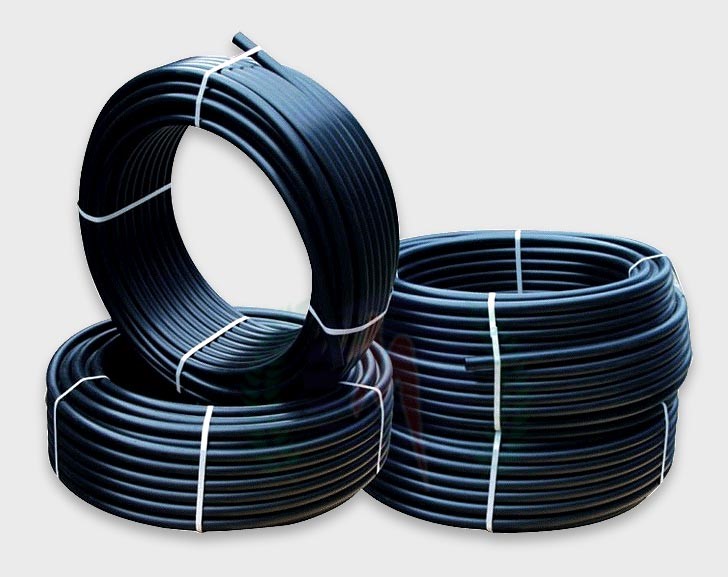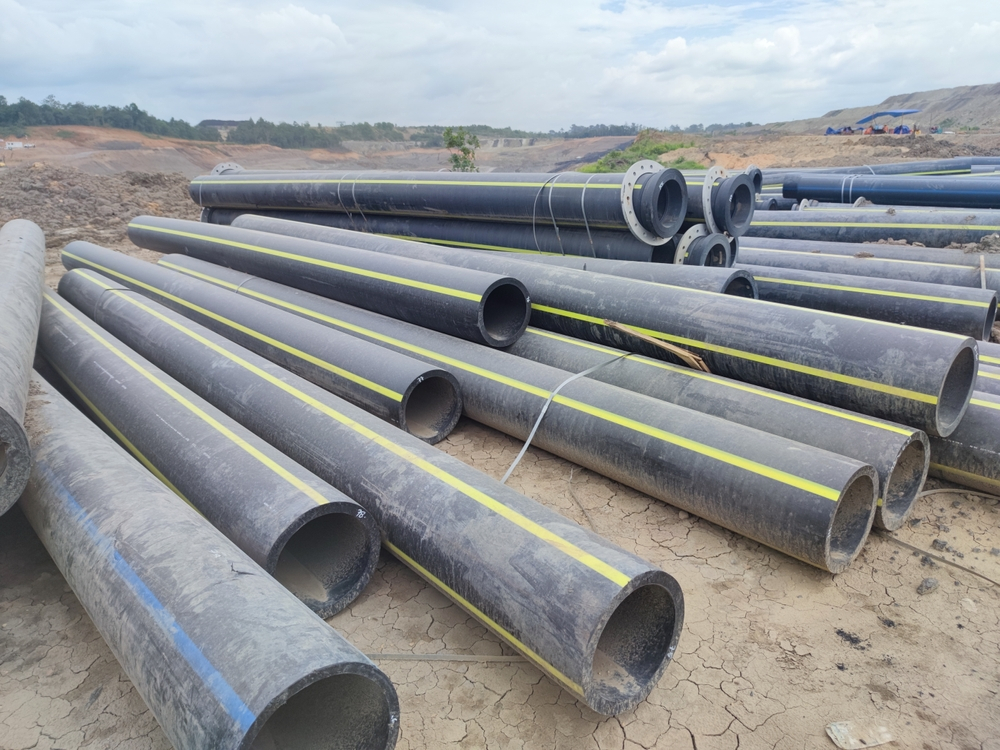Recognizing the Secret Perks of HDPE Pipe for Water and Wastewater Administration
The usage of HDPE pipe in water and wastewater administration provides many advantages that merit factor to consider. Its outstanding resilience and long life expectancy make it a preferred option for several tasks. In addition, the product's resistance to rust and chemical damage improves its dependability in different settings. The benefits prolong past simply longevity and resistance. Texas hdpe pipe manufacturer. Exploring its cost-effectiveness and environmental effect reveals a lot more compelling reasons for its extensive adoption in contemporary facilities
Exceptional Sturdiness and Longevity

HDPE pipe attracts attention for its exceptional resilience and longevity, making it a recommended option in water administration systems. Built from high-density polyethylene, these pipelines can stand up to substantial pressure and tension, guaranteeing reputable performance gradually. Their durable nature permits them to withstand severe environmental conditions, including temperature changes and soil motions, which can trigger various other materials to fail.
The life-span of HDPE pipes frequently surpasses half a century, offering a cost-efficient option for municipalities and markets alike. Furthermore, the product's lightweight properties streamline installation, lowering labor prices and timeframes. This toughness minimizes the demand for constant fixings or substitutes, better enhancing its financial charm.
In water administration applications, the reliability of HDPE pipes suggests less interruptions and improved service connection, making them indispensable to lasting facilities growth. The combination of durability and durability solidifies HDPE's function as a foundation in reliable water monitoring services.

Resistance to Corrosion and Chemical Damage
While several materials give in to rust and chemical damage gradually, HDPE pipes display impressive resistance, making them suitable for various water management applications. This durability comes from the molecular framework of high-density polyethylene, which is naturally non-reactive and does not wear away like steels or degrade from direct exposure to harsh chemicals. Consequently, HDPE is highly efficient in atmospheres with aggressive materials, such as wastewater systems that may include acids, bases, and organic solvents.
Additionally, HDPE pipes can endure ecological aspects such as dirt level of acidity and saline problems, further enhancing their suitability for varied applications (Texas hdpe pipe manufacturer). Their capacity to keep structural honesty with time lowers the threat of leaks and failings, which is critical in making sure the safety and security and reliability of water distribution and wastewater administration systems. Subsequently, the resistance to corrosion and chemical damages markedly adds to the general performance and durability of HDPE piping options
Cost-Effectiveness and Economic Advantages
When thinking about the monetary effects of water monitoring systems, the cost-effectiveness of HDPE pipes becomes obvious. These pipes supply lower setup and maintenance costs contrasted to standard materials like metal or concrete. Their lightweight nature streamlines transport and setup, resulting in minimized labor expenditures. In addition, HDPE pipes exhibit a long lifespan, frequently going beyond half a century, which translates to less replacements and lasting financial savings.
The resistance of HDPE to deterioration and chemical damage minimizes the requirement for pricey repair work and replacements. The pipelines likewise support reliable water circulation, reducing power costs related to pumping systems. By minimizing leaks and water loss, HDPE pipes add to considerable economic advantages for communities and markets alike. Generally, the first investment in HDPE piping can yield considerable financial returns over the life-span of the water monitoring system, making it a prudent selection for sustainable infrastructure growth.
Environmental Sustainability and Decreased Influence

Convenience and Flexibility in Setup
Due to their distinct properties, HDPE pipelines offer impressive convenience and versatility in installation, making them ideal for a vast array of applications. Their lightweight nature enables less complicated handling and transportation, lowering labor costs and setup time. HDPE pipelines can be curved and formed to fit different surfaces and project needs, which is particularly advantageous in testing atmospheres.
Additionally, their resistance to corrosion and chemical damage enables installment in varied setups without the demand for specialized protective coatings. The ability to fuse joints creates a continual, leak-free system, boosting the general honesty and integrity of the installation. HDPE's adaptability additionally accommodates ground movement, decreasing the risk of damage in areas susceptible to moving dirt. In general, these features make HDPE pipes not just functional however additionally a preferred option for water and wastewater administration systems.
Regularly Asked Questions
Exactly How Does HDPE Pipeline Compare to PVC in Water Monitoring Applications?
HDPE pipe uses remarkable flexibility, resistance to deterioration, and durability contrasted to PVC. Its lighter weight helps with much easier installation, while its long life-span reduces replacement costs, making HDPE a preferred option in water administration applications.
What Is the Life Expectancy of HDPE Piping Under Typical Conditions?
Under typical conditions, HDPE pipes can have a life-span ranging from 50 to 100 years. Their durability and resistance to deterioration add to their lasting efficiency in different applications, making them a trustworthy choice for infrastructure.
Are HDPE Pipes Recyclable After Their Service Life?
Yes, HDPE pipelines are recyclable after their solution life. Pipe Manufacturing Midland TX. They can be refined and repurposed right into brand-new products, significantly reducing ecological influence and promoting sustainability within the market, making them an environment-friendly selection for piping remedies
What Is the Installation Refine for HDPE Pipeline?
The setup procedure for HDPE pipes entails site preparation, trenching, pipe blend or mechanical joining, backfilling, and pressure testing. Correct strategies assure a resilient and efficient system for carrying water and wastewater efficiently.
Can HDPE Pipeline Be Used for Both Potable and Non-Potable Water Systems?
Yes, HDPE pipelines can be utilized for both safe and clean and non-potable water supply. Their convenience, longevity, and resistance to rust make them suitable for numerous applications, guaranteeing secure and reliable transport of water in various contexts.